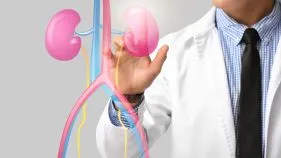Your kidneys are silent workers, filtering around 50 gallons of blood every day and helping your body maintain balance. But when kidney function begins to decline, the symptoms may be subtle—or even go unnoticed—until serious damage has occurred. Understanding the early and late-stage kidney disease symptoms can help you take action before it’s too late.
In this blog, we’ll explain what kidney disease is, outline the most common symptoms, and share what you should do if you suspect your kidneys aren’t functioning as they should.
What is Kidney Disease?
Kidney disease refers to any condition that impairs kidney function over time. Chronic Kidney Disease (CKD) develops gradually and can lead to permanent kidney failure (end-stage renal disease) if left untreated. It’s often linked to diabetes, high blood pressure, infections, or inherited disorders.
10 Most Common Kidney Disease Symptoms
1. Fatigue and Weakness
As kidney function declines, waste builds up in the blood, leading to fatigue, low energy, and difficulty concentrating. You may also develop anemia, which contributes to persistent tiredness.
2. Swelling (Edema)
One of the clearest signs of kidney disease is swelling in the ankles, feet, legs, hands, or face due to fluid retention caused by poor kidney filtration.
3. Changes in Urination
More or less frequent urination
Foamy or bubbly urine
Dark-colored or bloody urine
Pain or burning sensation while urinating
These changes signal that your kidneys may be struggling to eliminate waste.
4. Persistent Itching
The buildup of toxins and imbalances in minerals like phosphorus can cause intense itching, especially in the arms, legs, and back.
5. Shortness of Breath
Excess fluid in the lungs or anemia caused by kidney disease can make breathing difficult, even during light activity or rest.
6. Nausea and Vomiting
Accumulation of waste in the bloodstream (uremia) can lead to nausea, vomiting, and loss of appetite—common signs of advanced kidney disease.
7. Puffy Eyes
Constant puffiness around the eyes may indicate that your kidneys are leaking protein into your urine—a common early sign of damage.
8. Muscle Cramps
Impaired kidney function can lead to imbalances in calcium and phosphorus, which may cause painful muscle cramps.
9. Metallic Taste and Bad Breath
A metallic taste in the mouth and ammonia-like breath are signs of toxin buildup that result from poor kidney filtration.
10. High Blood Pressure
Damaged kidneys struggle to regulate blood pressure, and in turn, high blood pressure can further harm your kidneys.
When to See a Doctor
If you’re experiencing one or more of these symptoms consistently, it’s important to consult a nephrologist immediately. Early detection can slow disease progression and prevent complications.
Diagnosing Kidney Disease
Doctors typically run the following tests to assess kidney health:
Blood tests (to check creatinine and estimate GFR)
Urine tests (to detect protein or blood)
Imaging scans (ultrasound or CT)
Kidney biopsy (in specific cases)
Preventing and Managing Kidney Disease
While some causes are unavoidable, you can reduce your risk by:
Controlling blood pressure and blood sugar
Staying hydrated
Eating a balanced, low-sodium diet
Avoiding excessive use of NSAIDs or painkillers
Getting regular kidney function tests, especially if you have diabetes, hypertension, or a family history of kidney problems
Expert Kidney Care at Prabhakar Bhurke Clinic
At Prabhakar Bhurke Nephrology, Urology, and Gynaecology Fertility Clinic, we specialize in early detection and advanced treatment of kidney disease. Dr. Sandip Prabhakar Bhurke, a trusted Kidney (Renal) Nephrologist Specialist, offers:
Personalized treatment plans
Regular monitoring and diagnostics
Diet and lifestyle counseling
Dialysis and transplant evaluation
Clinic, home, and video consultations
Our clinics in Andheri West (Lokhandwala) and Borivali West, Mumbai, are equipped with state-of-the-art facilities and compassionate professionals dedicated to your kidney health.
Don’t Wait for Symptoms to Get Worse—Take Control of Your Kidney Health Today
If you’re noticing signs of kidney disease, book a consultation now. The earlier we act, the better your chances of managing or even reversing the damage.




